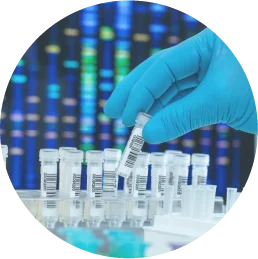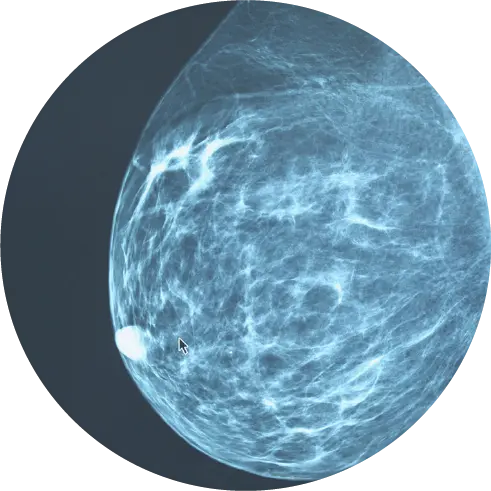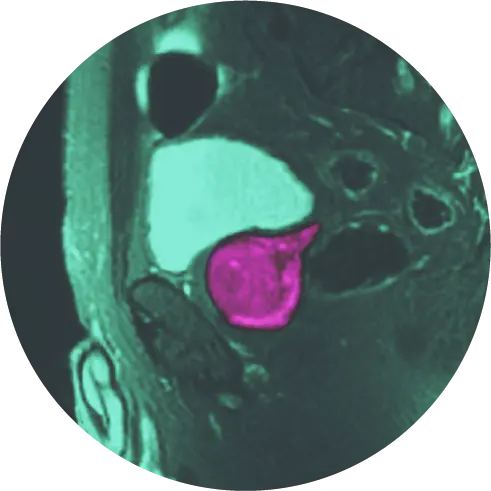For many of us, the start of a new year signals the beginning of a renewed focus on our health. We often vow to pay more attention to the foods we eat and the amount of exercise we get. We also may pledge to curb bad habits like smoking or drinking.
If you are taking steps toward a healthier new year, we applaud you. And we’d like to remind you about your breast health as you embark on this journey. To help you do just that, here’s a breast health checklist to help you get on track and stay on track in 2023.
1. Schedule an annual screening mammogram. A screening mammogram is a low-dose X-ray designed to check for signs of breast cancer before symptoms are present.
This highly effective tool can detect breast cancer months and even years before a lump or other symptoms are noticeable. Early detection is critical because the sooner a cancer is found, the easier and more effectively it can be treated.
Current recommendations for women of average risk is to begin annual mammograms at age 40.1
2. Become familiar with your breasts. Monthly breast self-exams are not a substitute for screening mammograms, but they are a critical part of breast health.
Knowing how your breasts usually look and feel will help you notice any changes that may be warning signs. Keep in mind that your hormone cycle can cause changes in breast tissue and breast tenderness. The best time to do a monthly self-exam is usually the week after your menstrual period ends.
You can perform the self-exam in front of a mirror, in the shower, or while lying down. You’ll first want to inspect your breasts visually. Then, your goal is to use the pads of your fingertips and different levels of pressure to feel for any changes in breast tissue.
Roughly 8 out of 10 lumps women detect in a self-exam are not cancerous. Still, if you discover a lump or some other abnormality, you should schedule a visit with your doctor to rule out any problems.2
3. Understand your breast cancer risk. Factors such as age or having dense breast tissue put women at a higher risk of developing breast cancer.3 Additionally, women with a close relative who has had breast cancer or who have an inherited gene mutation are at greater risk.
If these risk factors apply to you, you should talk with your doctor about possible preventative measures you can take.4
4. Make lifestyle changes. Living a healthy lifestyle may help lower your risk of getting the disease.
- Maintain a healthy weight. Obesity—generally defined as a body mass index (BMI) over 30—may increase your risk of breast cancer, especially after menopause.5
- Get active. Physical activity helps regulate estrogen and insulin levels, which can impact breast cancer growth. An exercise routine that includes regular aerobic activity also enables you to maintain a healthy weight, which in turn helps regulate hormone levels.6
- Drink less alcohol. Women who consume more than one alcoholic beverage a day are at higher risk for breast cancer. According to researchers, here are three reasons:
- Alcohol consumption can lead to weight gain, which can lead to increased cancer risk.
- Drinking can increase the production of estrogen and other hormones.
- Alcohol can boost the amount of folic acid in the body, which may increase cancer risk.7
- Don’t smoke. Cigarette smoking is linked to a higher risk of breast cancer in premenopausal women. Smoking also can interfere with breast cancer treatment.8
- Start a family and breastfeed. Research indicates that women who give birth to their first child before age 30 and breastfeed their babies for at least six months may have a lower breast cancer risk.9
5. Aim to lower your stress levels.
Studies examining the link between stress and cancer risk have had mixed results. In some studies, stress appears to be linked to cancer risk, but the relationship could be indirect. It could be that people under chronic stress may develop certain unhealthy behaviors, such as smoking, overeating, becoming less active, or drinking alcohol. However, research has shown that chronic stress interferes with the body’s immune system.10
An excellent way to combat stress is by incorporating self-care into your daily routine. Here are a few ideas:
- Get outside and enjoy nature more often
- Reduce screen time
- Follow a relaxing bedtime routine
- Focus on gratitude11
6. Practice self-care.
As you head into a healthy new year, we want to remind you that self-care is not selfish. And if you have any questions about mammograms or other screenings that can contribute to your breast health, HALO Diagnostics is here for you. We offer breast screenings at HALO Breast Care Center in Chico, Silicon Valley MRI in Silicon Valley, Palms Imaging Center in Oxnard, and the four Precision Imaging Centers in and around Jacksonville, Florida. Get in touch with our breast care experts today to learn more about your breast screening options.
References
2 https://www.nationalbreastcancer.org/breast-self-exam
3 https://www.cdc.gov/cancer/breast/basic_info/risk_factors
4 https://www.cdc.gov/cancer/breast/basic_info/risk_factors.htm#
5 https://www.breastcancer.org/risk/risk-factors/being-overweight
6 https://www.cancer.org/latest-news/get-moving-to-help-reduce-your-risk-of-breast-cancer.html#:
8 https://www.breastcancer.org/risk/risk-factors/smoking
10 https://www.cancer.gov/about-cancer/coping/feelings/stress-fact-sheet#r15
11 https://www.nationalbreastcancer.org/blog/7-steps-to-self-care/




